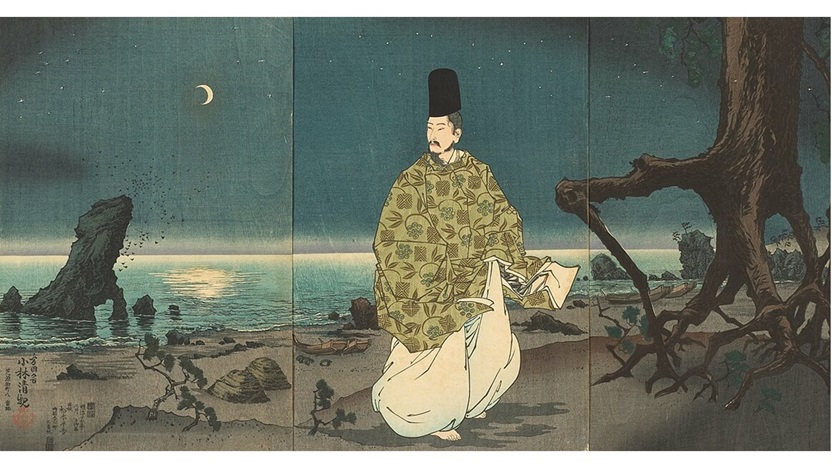.
Offerings of the Heart
A Symbolic Poem
.
The songs of Yamato
From seeds of healing sprout
As offerings of our hearts,
And if ever hurt we feel,
Swiftly songs arise;
Heard by hearts, we heal.
For one need not to heal,
From voices heard that hurt,
Could we not hear nor feel.
In harshest times of fear,
In prayer when we kneel,
Heartfelt songs we hear.
While ancients heard by heart,
And needed not write with sight,
In the hours of gloom,
Where candle wicks alight,
In writing we see healing,
From heartfelt letters we seal.
I find the scrolls now sealed,
Of old tales that appeal.
While merry ones were rare,
The saddest ones were those,
My own heart, it knows,
I found them and did care.
And now begins my own,
An unheard tale from heart,
For fellows far from home,
Who, too, may find my seal,
And see their own hearts heal.
.Poet
Poet’s Note: The Old Japanese “koto” meant both “words” (what is heard) and “meaning” (what is felt, the heart) are symbolically conveyed here in English through the resonances of “heart,” “heard,” and “hurt.”
.
.
Yoshikaze Kawakami studied classical Japanese literature in Tokyo. He has published translations of
Noh theatre in Poetry and Wordplay in Noh Theatre.















Symbolic and self-referential, yet universally logical. Thank you for this well-developed, playful piece.
Thank you. The techniques and themes I owe much to Japanese classical poetry. I am happy that you have enjoyed it.
It is most appropriate to create a poem on this subject through many touches on symbolic words. The subject is not apparent at first. Gradually, through the resonances of “heart,” “heard,” and “hurt,” it is revealed to be the speaker’s joining a tradition of poetry as he explains the process. The English rhyme words “feel,” “heal,” and “seal” are perhaps even more important than the ones rendering Old Japanese “koto.” “Feel” begins the symbolic travel, while “heal” and “seal” are endpoints. Thinking of the poet as a writer completing his brushwork, the expectation is for him to apply his personal cinnabar “seal” in conclusion, but for genuine feeling, it is best to end with “heal.” This shows the beneficial effect transferred to others, just as the speaker receives it by writing in order to proceed through “feeling” to “healing.”
Even though the songs are said to be swift, the slow, indirect discourse settles into a sense of Yamato centuries ago.
Thank you very much for your commentary. I also would like to suggest, that in the word “seal” I also conceal the word “see” (see heal). Because through vision we may read.
In writing we see heal,
From heartfelt letters we seal.